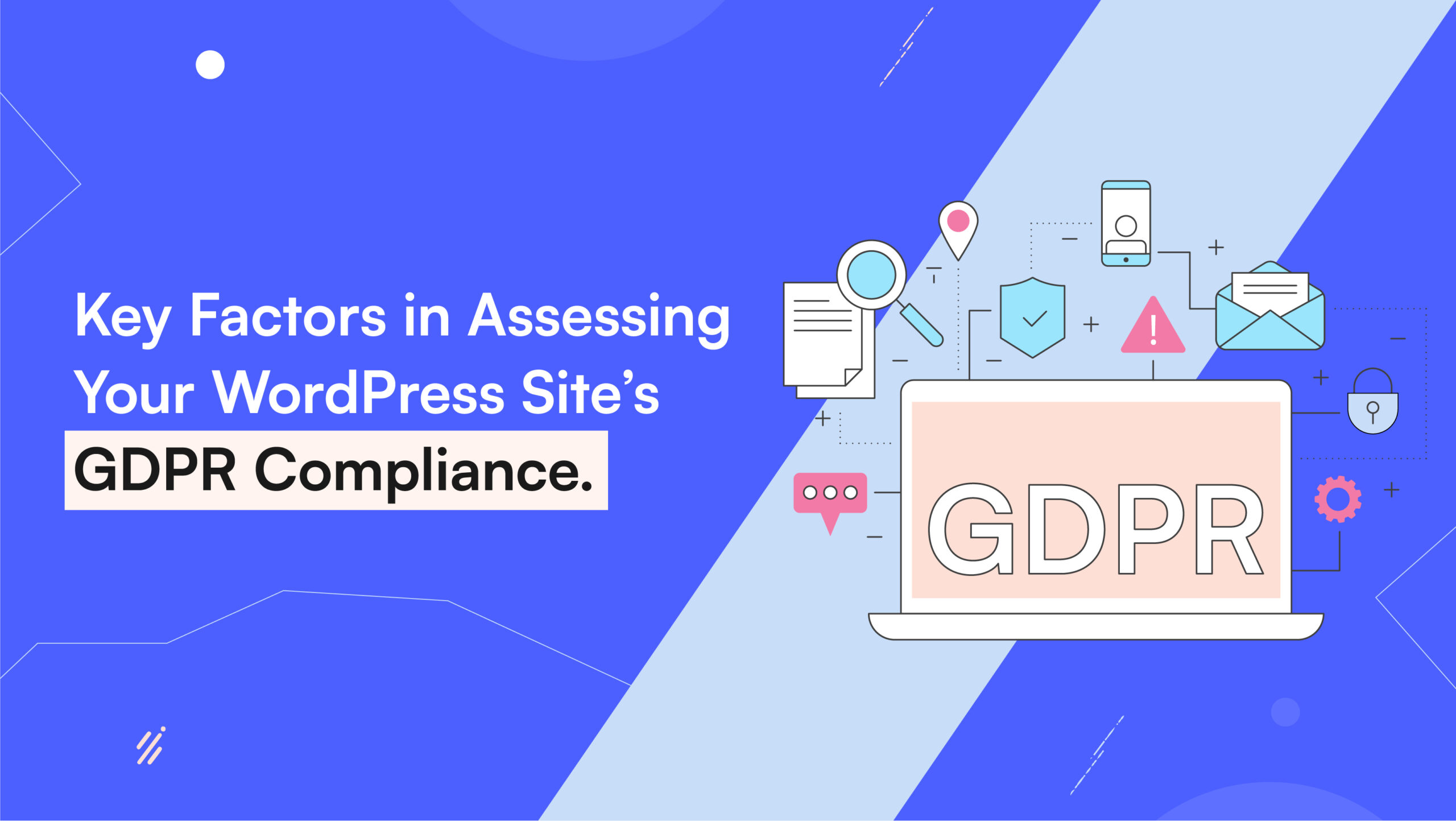Worried about your WordPress Website Is it Safe Or Not?
You don’t need to worry anymore! General Data Protection Regulation, best known as GDPR, navigates through the complicated web of online security measures and works accordingly.
Its framework is constructed to maintain user consent, and transparency, and provide potent data protection.
As one of the most preferred CMS tools all over the world, WordPress plays an integral part in GDPR compliance.
GDPR stands out as a highly regarded data protection establishment. It is the base that has been built to safeguard website data. At NineGravity, we have the A to Z information about your WordPress website’s safety and security. We have discussed all the major aspects that need to be assessed to make sure your site is compliant with the GDPR. But first…
Is GDPR Important?
GDPR, or the General Data Protection Regulation, started in the European Union and was first approved in 2016. It became a full legal framework in 2018. GDPR was created to protect website and user privacy.
So, if you’re wondering if GDPR is important for your WordPress website’s safety, the answer is yes. It’s a powerful tool with a global impact. It affects businesses worldwide and sets rules for how they must handle and secure user data.
GDPR also maintains…
- Data Subject Rights by offering several controls to access, amend, and erase individual data whenever required.
- Legal Data Processing as organizations must possess the right to process their personal data on a legal basis. It promotes transparency and accountability of business organizations significantly.
- Notification of Data Breach as it is a necessary step under GDPR, which ensures confidence and consistency.
- Integration of Data Privacy into the construction and development of the website, so GDPR can actively provide security.
- Global Access to All EU Residents as GDPR mainly originated in the European Union. No matter their location, GDPR will provide data protection to any organization that handles data belonging to EU residents.
Your WordPress is Already GDPR Compliant!
Generally, WordPress is known to possess privacy to its core. Therefore, you do not need to add any extra feature to make sure your WordPress site is safe. It is automatically designed to protect itself from any possible hazards.
However, you must make sure that your WordPress is updated. You have to use the latest version of WordPress (≥4.9).
If you are not sure about your version’s GDPR compliance, you can easily log in to the dashboard of your website and check the “Updates” section.
If it mentions that updates are available, just download it, and you will be all set!
Key Factors for WordPress Website’s GDPR Compliance Assessment:
We have included the major factors that play a vital role in keeping GDPR compliancy in check for WordPress sites. Take a look1!
1. Upgraded Privacy Policy:
You must have an updated Privacy Policy page that clearly states what data the users are sharing. It must also mention what the usage of those particular data is.
This page also states –
- Scopes of data collection, be it individual user data, usage information, or cookies.
- The legal basis of collecting user data stating why those data have been collected.
- Disclosure of user data will be shared with any third party and how it will be done.
- The rights users usually have, be it for accessing or erasing their private data.
The Privacy Policy stands as transparent proof that lines up the WordPress website and its GDPR requirements.
2. Cookie Policy:
It is an important document that highlights the use of cookies and other tracking tools. The cookie policy needs to be as detailed as possible. It is not only for ensuring clear compliance with GDPR but also to make sure the users have detailed knowledge about their experience.
- A categorization of various kinds of cookies is done on this page so, that users have a clear idea about efficient, critical, and third-party cookies.
- The purposes each cookie may serve are mentioned here. Includes everything from analytics to advertising and personalization.
- A comprehensive description regarding how users can give consent to use cookies and manage those preferences is given.
- The duration of time the cookies are to be there is stated as some cookies are session-based. Some cookies even depend on the number of times someone visits certain sites.
- If third-party cookies are being used, detailed data is shared stating their purposes.
3. Data Processing Agreement (DPA):
To comply with GDPR, it’s important to have clear and legal agreements with third-party data processors. This is where Data Processing Agreements come in. They outline the relationships with these third parties and make sure they follow data security measures.
- It also defines the roles your organization and the data processor are playing and states both sides’ responsibilities.
- Outlines the limitations data processors have, so users get clear idea where their information is getting processed and its purpose. It is also a step to ensure GDPR standards are being met.
- It specifies data security measures and breach response plans, so processor get maximum security. It states the timelines and processes while reporting about data breaches.
- It also mentions when data processor is allowed to integrate sub-processors to maintain transparency.
4. Implementing User Rights:
GDPR values user rights and grants rights to access and delete their personal data whenever they see fit. Thus, WordPress has kept paths open in order to oblige GDPR.
- Your WordPress site must have an easily accessible dashboard where they can manage their data without any hassle.
- WordPress offers a transparent way to grant users’ data access requests. It helps in reviewing personal information and rectifying it through an efficient process.
- In compliance with GDPR, users get the ‘Right to Erasure’ through which they can request to delete their personal data.
- A smooth and clear communication channel is crafted to ensure a user-friendly experience. It lets users send and monitor their requests.
5. Reviewing Third-party Vendor and Plugin Policy:
It is necessary for your WordPress website to provide a way to review and upgrade plugins and third-party vendors’ integration. It is a key factor in achieving GDPR compliance.
- You need to assess how the plugins and third-party processors use user data and ensure they are maintaining GDPR standards.
- You must include GDPR clauses and update agreements with those vendors and highlight their roles and responsibilities.
- It is your responsibility to make sure if the third-party integrations are respecting user consents when processing data. It is a critical factor to GDPR compliance.
- Schedule routine reviews to ensure third-party plugins and data processors meet safety standards and do not threaten user confidentiality in any way.
6. Assess Safety & Security Measures:
The GDPR highly values security and requires organizations to take every necessary step to ensure 100% user safety.
- Continuously update the software and user the latest version of WordPress as well as themes and plugins. It eradicates security risks quickly.
- You must implement safe HTTPS proprieties to offer complete data protection and encrypted data transmission.
- Select a high-quality and secure hosting provider for WordPress website, which offers enhanced security measures to protect your website.
- You must conduct multifactor authentication and string password policies to provide secure data control.
Wrapping up
GDPR is designed to protect user privacy effectively. Every organization must follow its standards and comply with the regulations. GDPR is not just a security measure but a law that needs to be followed.
That’s why we recommend you follow the key factors and assess your WordPress website to fully protect your customers, audience, and employees.



